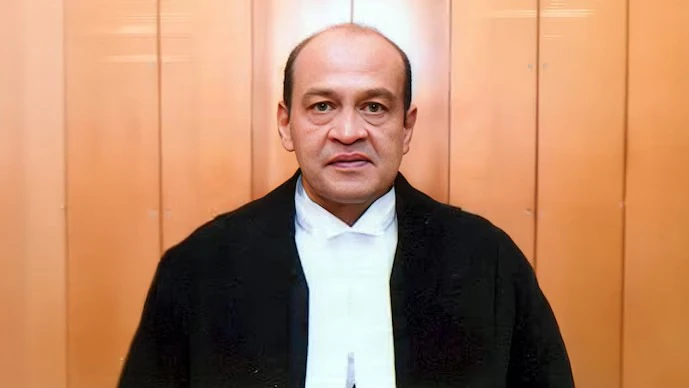On March 14, 2025, a fire broke out at the home of Delhi High Court Judge Justice Yashwant Varma, exposing a shocking discovery: burnt sacks of cash worth an estimated ₹45-50 crore. What started as a small incident has snowballed into a major controversy, prompting the Chief Justice of India (CJI) to launch a three-member inquiry. This blog breaks down the laws involved, what’s likely to happen next, and the potential consequences—all in plain, easy-to-read terms.
What Happened?
It was Holi night when a fire sparked in the store room of Justice Varma’s official Delhi residence. Firefighters arrived, put out the blaze, and found something unexpected: four to five half-burnt sacks stuffed with Indian currency. The police recorded video evidence, estimating the cash at ₹45-50 crore (about $5.4-6 million USD). The footage reached top officials and the Supreme Court collegium, sparking outrage.
Justice Varma denies owning the money. He says it’s a plot to ruin his reputation and claims neither he nor his family knew about it. Meanwhile, the Delhi High Court Chief Justice, Justice Upadhya, sent a report to the CJI, attaching police findings and urging a deeper investigation. The CJI responded by forming a three-judge panel to dig into the truth.
The Laws at Play
This case involves serious legal rules. Here’s what applies:
- Constitution – Articles 124 and 218
These rules say a High Court judge can only be removed by the President if Parliament votes for it with a big majority. The reason? Proven “misbehavior” or inability to do the job. If the cash tied to wrongdoing, it could count as misbehavior. - Judges (Inquiry) Act, 1968
This law sets up how to investigate judges. The CJI’s three-judge committee will look at the evidence—like the police video—and decide if Justice Varma did anything wrong. Their report could lead to his removal if it’s bad news. - Prevention of Corruption Act, 1988
If the cash came from bribes, this law kicks in. It punishes public officials for having wealth they can’t explain, with up to seven years in jail and fines. But criminal charges would likely wait until he’s no longer a judge. - Income Tax Act, 1961
Unexplained cash can be taxed heavily—up to 42.74%—plus penalties. If it’s linked to foreign sources, even stricter black money laws might apply. - Judicial Ethics
Judges must act with honesty and avoid scandals. Even if the cash isn’t his, the situation could still hurt public trust, leading to discipline.
What’s Next?
The three-judge committee is now in charge. Here’s what to expect:
- Digging for Evidence
They’ll question Justice Varma, his family, and staff about the cash. The police video and burnt notes will be key. They’ll also check if the store room was really separate from his living space, as he claims. - Justice Varma’s Side
He says it’s a setup. The committee will look into who could’ve planted the cash and why. His claim of being out of town during the fire will be double-checked. - How Long It’ll Take
The probe might wrap up in weeks or months. The report goes to the CJI, and if it’s serious, Parliament could vote on his fate. Public pressure might speed things up. - Right Now
Justice Varma’s off the bench—no court work for him until this is settled.
What Could Happen to Justice Varma?
The outcome depends on what the committee finds. Here are the possibilities:
- If He’s Guilty
- Removal: If the cash is his and it’s shady, Parliament could remove him. It’s rare, but this case is big enough to push it through.
- Jail Time: After removal, corruption charges could mean up to seven years in prison and fines. The cash would be taken away too.
- Reputation Ruined: His career would be over, guilty or not.
- If He’s Innocent
- Back to Work: If the cash was planted and he’s clear, he could return—maybe to Allahabad High Court, where he was first sent.
- Fighting Back: He might sue for defamation, though that’s a tough win.
- If It’s Unclear
- Middle Ground: If no one can prove the cash’s story, he might avoid removal but get a transfer or early retirement. Trust in him would still take a hit.
Why This Matters
This isn’t just about one judge—it’s about faith in India’s courts. People are angry, saying a regular person caught with ₹50 crore would be in jail already. Lawyers like Swapnil Kothari warn that if nothing big happens, trust in justice could crumble. The collegium system, where judges pick judges, is also getting heat for being too secretive—first trying to transfer Varma instead of investigating.
Wrapping Up
As of March 23, 2025, the Delhi High Court cash scandal is still unfolding. The three-judge team will decide what’s true, and their report could change everything. Will Justice Varma be cleared, punished, or stuck in limbo? Either way, this case tests India’s judiciary. Can it hold its own accountable? We’ll know soon. Keep watching—the truth is still burning through the ashes of that Holi night fire.
Article 218, Judges Inquiry Act, and Prevention of Corruption Act govern judicial misbehavior and corruption charges.
A three-member committee will probe the cash’s origin, submit a report, and recommend action to the CJI.
Removal, imprisonment up to 7 years, and fines if guilty; reinstatement if cleared.







